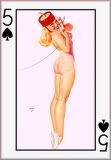then-Defense Secretary Donald Rumsfeld ordered Tomba not to answer legislators' questions,
The fight over domestic intelligence surveillance is more about legal loopholes than illegal listening.
After leaving the National Security Agency in 1976, Joseph J. Tomba had no contact with his former employer until 2004. Then, for the first time in almost three decades, the super-secret signals intelligence agency called to ask him to come back to headquarters to be interviewed for an in-house training film. Though long retired from government service, Tomba, a former technical specialist for NSA, proceeded to Fort Meade, Md., home of the agency. The film, however, had nothing to do with instruction about technical specialist work. It was a primer for NSA employees on how to deal with congressional inquiries and subpoenas. Tomba has a unique perspective on the subject. On Feb. 25, 1976, the West Virginia-born engineer became the first, and so far the only, NSA employee subpoenaed by Congress for his role in a domestic surveillance program. And because he was a less-than-cooperative witness before a House Government Operations subcommittee, he also became the only NSA employee to be recommended for a citation for contempt of Congress. The lack of cooperation wasn't entirely his idea. As part of a sweeping assertion of executive privilege by President Gerald Ford, then-Defense Secretary Donald Rumsfeld ordered Tomba not to answer legislators' questions, particularly those about Project Shamrock, under which NSA had spent the previous three decades intercepting almost all outgoing U.S. telegram traffic. he also became the only NSA employee to be recommended for a citation for contempt of Congress.
After leaving the National Security Agency in 1976, Joseph J. Tomba had no contact with his former employer until 2004. Then, for the first time in almost three decades, the super-secret signals intelligence agency called to ask him to come back to headquarters to be interviewed for an in-house training film. Though long retired from government service, Tomba, a former technical specialist for NSA, proceeded to Fort Meade, Md., home of the agency. The film, however, had nothing to do with instruction about technical specialist work. It was a primer for NSA employees on how to deal with congressional inquiries and subpoenas. Tomba has a unique perspective on the subject. On Feb. 25, 1976, the West Virginia-born engineer became the first, and so far the only, NSA employee subpoenaed by Congress for his role in a domestic surveillance program. And because he was a less-than-cooperative witness before a House Government Operations subcommittee, he also became the only NSA employee to be recommended for a citation for contempt of Congress. The lack of cooperation wasn't entirely his idea. As part of a sweeping assertion of executive privilege by President Gerald Ford, then-Defense Secretary Donald Rumsfeld ordered Tomba not to answer legislators' questions, particularly those about Project Shamrock, under which NSA had spent the previous three decades intercepting almost all outgoing U.S. telegram traffic. he also became the only NSA employee to be recommended for a citation for contempt of Congress.



